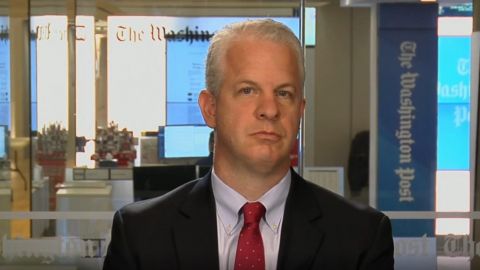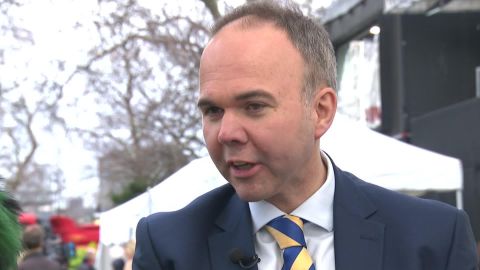Read Transcript EXPAND
CHRISTIANE AMANPOUR: What was the impetus that spurred you to want to — to get to the bottom of this?
CRAIG WHITLOCK, “THE WASHINGTON POST”: Well, like a lot of news stories, we got a tip. And back in August of 2016, so over three years ago, now we got a tip that Michael Flynn, a retired U.S. Army general who had played a key role in Afghanistan, had given an unpublished interview to an obscure U.S. government agency about the war in Afghanistan. And we heard he was quite critical about it. At the time, Michael Flynn was becoming more famous in the political arena and the United States for his support of Donald Trump. So we wanted to see what he had to say. And we put in a simple public records request for it. And long story short, it led us to a whole trove of more documents, but it took us three years to get our hands on them, under the public records law in the United States.
AMANPOUR: And so one of the quotes that you have basically is from Michael Flynn, and, again, as you say this larger-than-life character who was very, very pro-Donald Trump, and then flamed out in spectacular fashion, and did have this role as a lieutenant general in Afghanistan. “From ambassadors down to the low level, they all say, we’re doing a great job. Really? So, if we’re doing such a great job, why does it feel like we’re losing?” What did you discover? What made him feel that way?
WHITLOCK: So, I think he was frustrated. He had served in Afghanistan, but he felt, as a military intelligence official, that the reality on the ground, they were getting these reports from low-level military officials on the ground saying the war was not going well. The Taliban was resurgent. The Afghan Army was not capable of fighting them back. They were getting all these bad reports out of the field. But by the time they made their way up the chain of command, up to the Pentagon and to the White House, they were then being released to the public, the American people and the world, as saying, things are going just fine in Afghanistan, we need to send more troops, and we need to keep this up. So he was essentially saying this is similar to what happened in Vietnam with the United States, where the lead, the senior officials and, the military commanders in the field were spinning a much different story of the war than the reality on the battlefield.
About This Episode EXPAND
A comprehensive analysis of the U.K. election and Brexit, with input from Mark Landler, Afua Hirsch, Simon Fraser, Gavin Barwell and Helle Thorning-Schmidt. Plus, Craig Whitlock discusses his investigation into the war in Afghanistan for the Washington Post.
LEARN MORE



